What is the Connecticut statute of limitations debt? In Connecticut, this law sets a specific timeframe for creditors to sue debtors over unpaid debts. Typically, this period ranges from 3 to 6 years, depending on the type of debt. Once this period expires, while you still owe the debt, creditors cannot legally enforce the payment through lawsuits. This article will cover the different time limits for various types of debt and provide guidance on how to manage and respond to old debts.
Key Takeaways
- In Connecticut, the statute of limitations for most debts is six years from the last activity, while oral contracts have a three-year statute, impacting creditors’ ability to legally enforce debts.
- Once the statute of limitations expires, creditors cannot initiate legal actions for collection, although the debt remains due and can still affect credit scores for seven years.
- Consumers are protected under the Fair Debt Collection Practices Act, allowing them to dispute time-barred debts and protecting them from harassment by debt collectors.
Overview of Connecticut Statute of Limitations on Debt
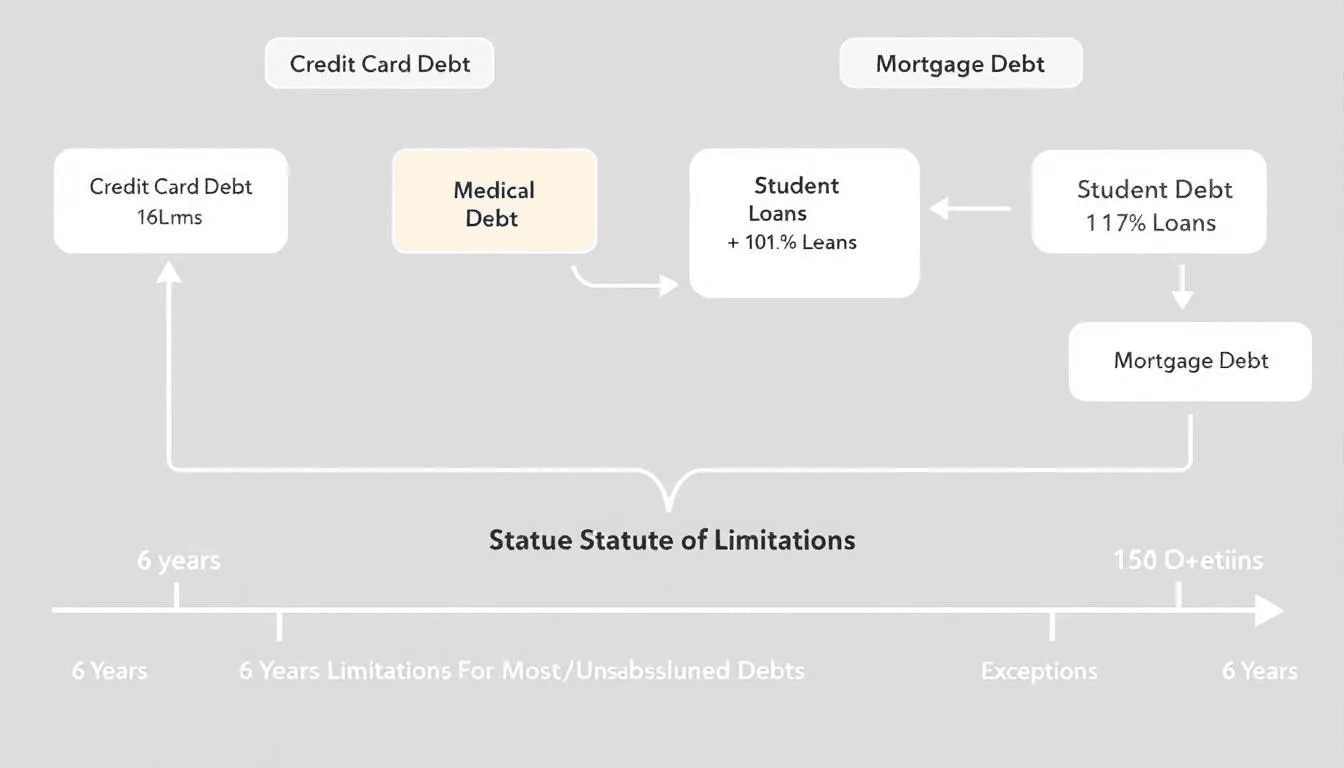

The statute of limitations is a critical law that sets a time limit for initiating legal proceedings on unpaid debt. In Connecticut, this deadline specifically applies to debt collection cases, meaning that creditors and debt collectors have a limited time frame to sue debtors for unpaid debts. Understanding these time limits and deadlines helps both creditors and debtors manage their financial relationships more effectively. Statutes play an important role in defining these parameters.
Once the statute of limitations expires, it doesn’t mean the debt vanishes into thin air. The debtor is still obligated to pay, but the creditor loses the legal right to take the debtor to court for collection. This period begins when the debtor defaults on their obligation or based on the date of the last activity on the account, such as a payment or acknowledgment of the debt, and action accrues.
The statute of limitations varies by debt type and agreement, so understanding the specifics is important for each case. These limitations ensure that legal actions are taken within a reasonable period and provide a sense of finality for both parties involved.
Time Limits for Different Types of Debt in Connecticut
In Connecticut, the statute of limitations for debt collection is generally six years, starting from the last activity associated with the debt. This applies to various types of debts, including credit card debt and simple contracts. Knowing these time limits can help you understand when a debt may become time-barred, meaning it can no longer be legally enforced through a lawsuit.
However, the specifics can vary based on the type of debt and the nature of the agreement. In the following sections, we’ll delve into the time limits for written contracts, open accounts, and oral contracts, providing a clearer picture of how Connecticut law applies to different debt scenarios.
Written Contracts and Open Accounts
In Connecticut, the statute of limitations for written contracts is six years, starting from the breach of contract. This includes formal agreements such as promissory notes and other written commitments to pay a specific amount. If no payment is made on a written contract for over four years, the debt might become uncollectible, though the formal limitation period remains six years.
Similarly, open ended accounts, such as credit cards, also have a six-year statute of limitations in Connecticut. The period begins from the date of the last payment. Alternatively, it may start when the account is considered delinquent. Be aware that partial payments or acknowledging the debt can reset the statute of limitations, allowing creditors more time to sue.
Oral Contracts
Oral contracts, while less formal than written agreements, are still legally binding in Connecticut. The statute of limitations for debt arising from an oral contract is three years. Enforcing an oral contract can be more challenging, as it requires proof of the agreement’s existence, often relying on witness testimony and other supporting evidence.
Impact of the Statute of Limitations on Debt Collection
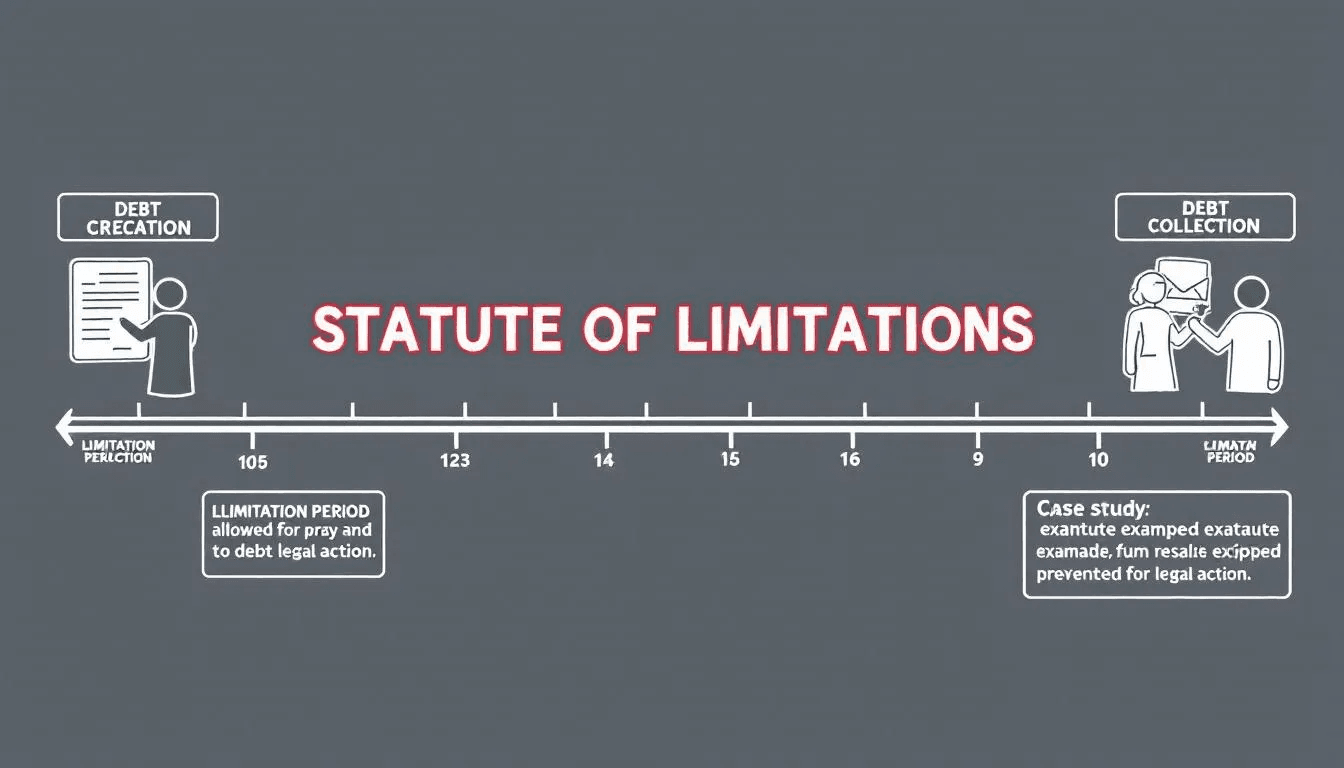

When the statute of limitations on a debt expires, it significantly impacts how debt collectors can pursue the debt. While creditors can still contact you to try to collect the debt, they cannot take legal action to enforce it. This means no lawsuits, no court judgments, and no wage garnishments for debts that are time-barred. However, don’t be surprised if you still receive phone calls or letters from collection agencies.
Despite the inability to sue, debt collectors may persist in their attempts to collect old debts through communication. It’s important to remember that while the debt remains on your credit report for seven years, its legal enforceability ceases once the statute of limitations expires. This distinction is crucial for managing your financial health and avoiding undue stress from persistent collection efforts.
Understanding these limitations can help you make informed decisions about whether to engage with debt collectors or consider other financial strategies. The expiration of the statute of limitations provides a layer of protection, but it doesn’t erase the debt or its impact on your credit history.
What Happens When the Statute of Limitations Expires?
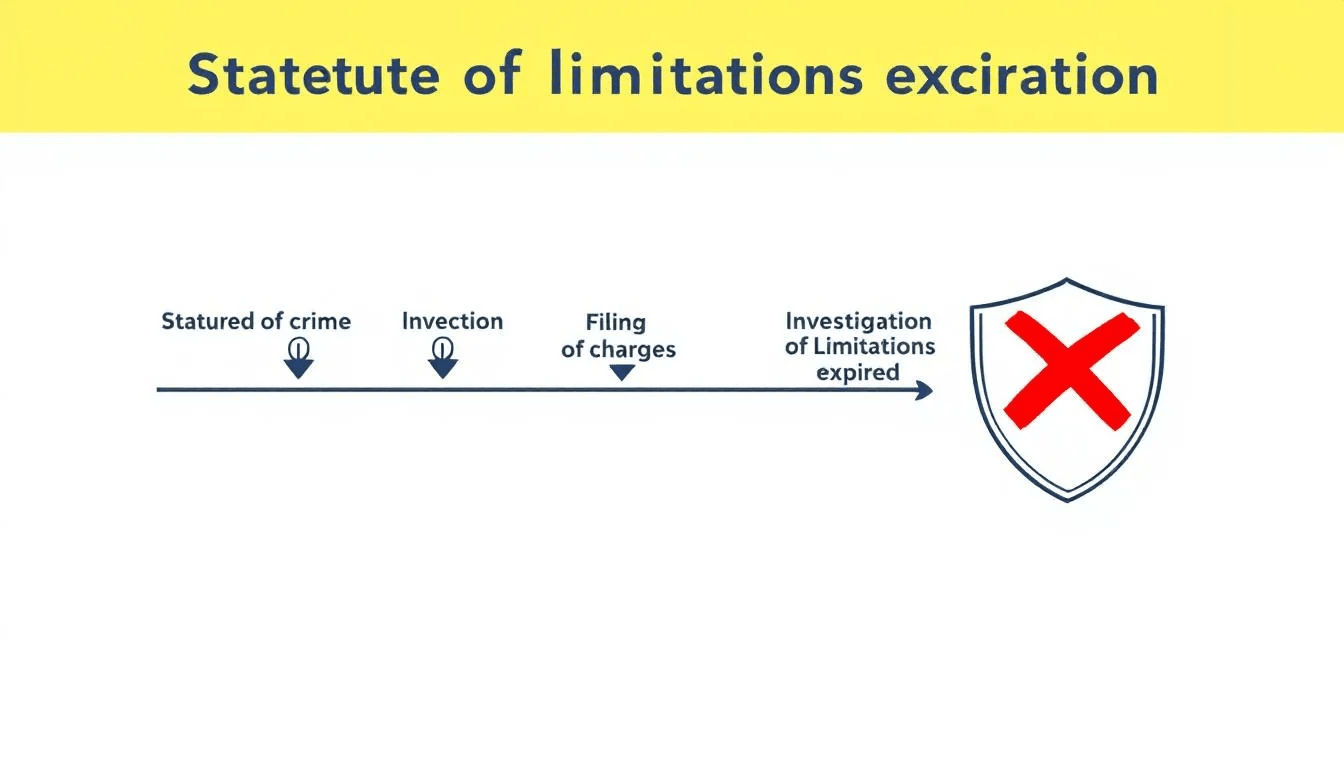

Once the statute of limitations on a debt expires, the debtor is no longer legally liable for the debt. This means creditors cannot initiate legal actions to recover the debt, effectively making it time-barred. However, the debt itself doesn’t disappear; it remains due, and creditors can still attempt to collect it through non-legal methods.
Avoid acknowledging or making payments on a time-barred debt, as this could reset the statute of limitations. Consulting with a lawyer can provide further guidance on managing time-barred debts and understanding your legal rights.
Remember, the debt can still affect your credit score for seven years, even without a court judgment.
Responding to Debt Collection Lawsuits in Connecticut
If sued for a debt that is no longer enforceable, assert the statute of limitations as your defense. File an answer detailing your defense within 30 days of receiving the summons. Ignoring the lawsuit can result in a default judgment against you, meaning you lose the case automatically and may face wage garnishments or asset seizures.
Defenses in a debt collection lawsuit can include claiming the old debt is too old or has already been paid. Understanding and asserting your claims can help you navigate these legal challenges more effectively and protect your financial well-being. You may owe it to yourself to be informed about your rights.
How to Handle Contact from Debt Collectors After Statute of Limitations Expires
Consumers have the right to assert that the statute of limitations has expired if sued for a debt. Key points include:
- Debt collectors cannot legally threaten or file lawsuits on time-barred debts.
- Debt collectors can still contact you to attempt collection.
- If you are sued for a time-barred debt, it’s important to appear in court and use the statute of limitations as your defense.
Consumers are protected from harassment or misrepresentation by debt collectors under the Fair Debt Collection Practices Act (FDCPA). If a debt collector violates these protections, contact the attorney general, file a complaint with the federal trade commission, or consider suing for damages related to consumer debt.
Verifying Debt Legitimacy
When contacted by a debt collector, it’s crucial to:
- Verify the legitimacy of the debt.
- Obtain a debt validation notice to ensure the debt is valid and accurate.
- Dispute the debt within 30 days after receiving this notice.
- During this 30-day period, request the name and address of the original creditor.
Additionally, ask for the debt collector’s license number to verify their legitimacy and avoid scams. These steps help ensure that you are dealing with a legitimate claim and not falling victim to fraudulent collection agency practices.
Legal Protections for Consumers in Connecticut
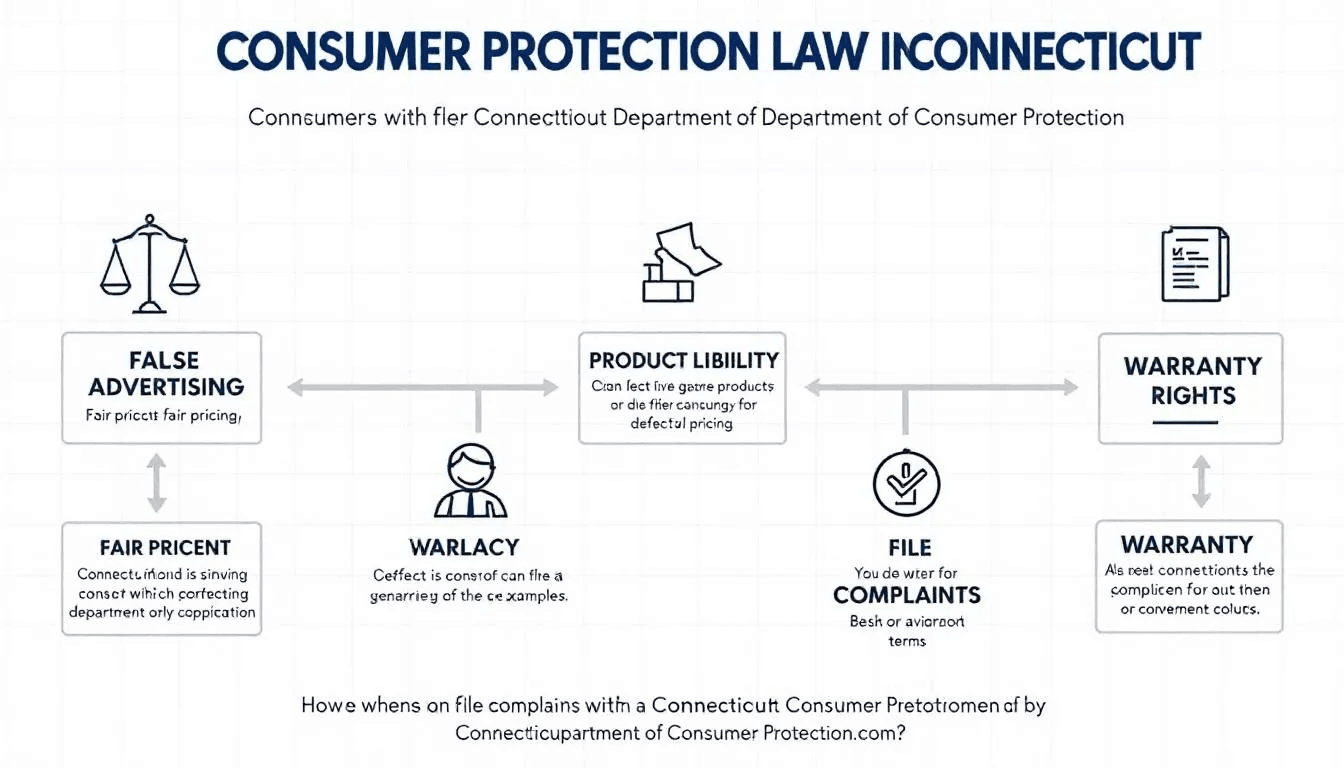

Consumers in Connecticut benefit from various legal protections under state and federal laws, including debt collection laws. The Fair Debt Collection Practices Act (FDCPA) shields consumers from harassment by third-party debt collectors. Key provisions include:
- Debt collectors must send a written notice within five days of initial contact.
- The notice must detail the debt amount.
- The notice must include the creditor’s identity.
Connecticut law also prohibits debt collectors from contacting consumers at their place of employment if they know the employer forbids such communication. If a debt collector violates these protections, consumers have the right to dispute the debt, request proof, and even sue for damages.
Connecticut law also protects certain income and personal property from creditors, helping consumers retain essential resources even after a default judgment, in accordance with state law regarding money.
Court Judgments and Their Statute of Limitations
In Connecticut, a court judgment can be collected for up to 20 years from the date it is rendered. This period can be extended to a maximum of 25 years if the creditor renews the judgment. When a creditor secures a court judgment, they can pursue the debtor’s assets through methods such as asset seizure and placing liens on property.
Creditors can renew judgments easily in Connecticut, allowing them more time to collect the debt. Interest on a court judgment continues to accrue until the debt is fully paid off, adding to the financial burden on the debtor.
Managing Old Debts You Cannot Pay
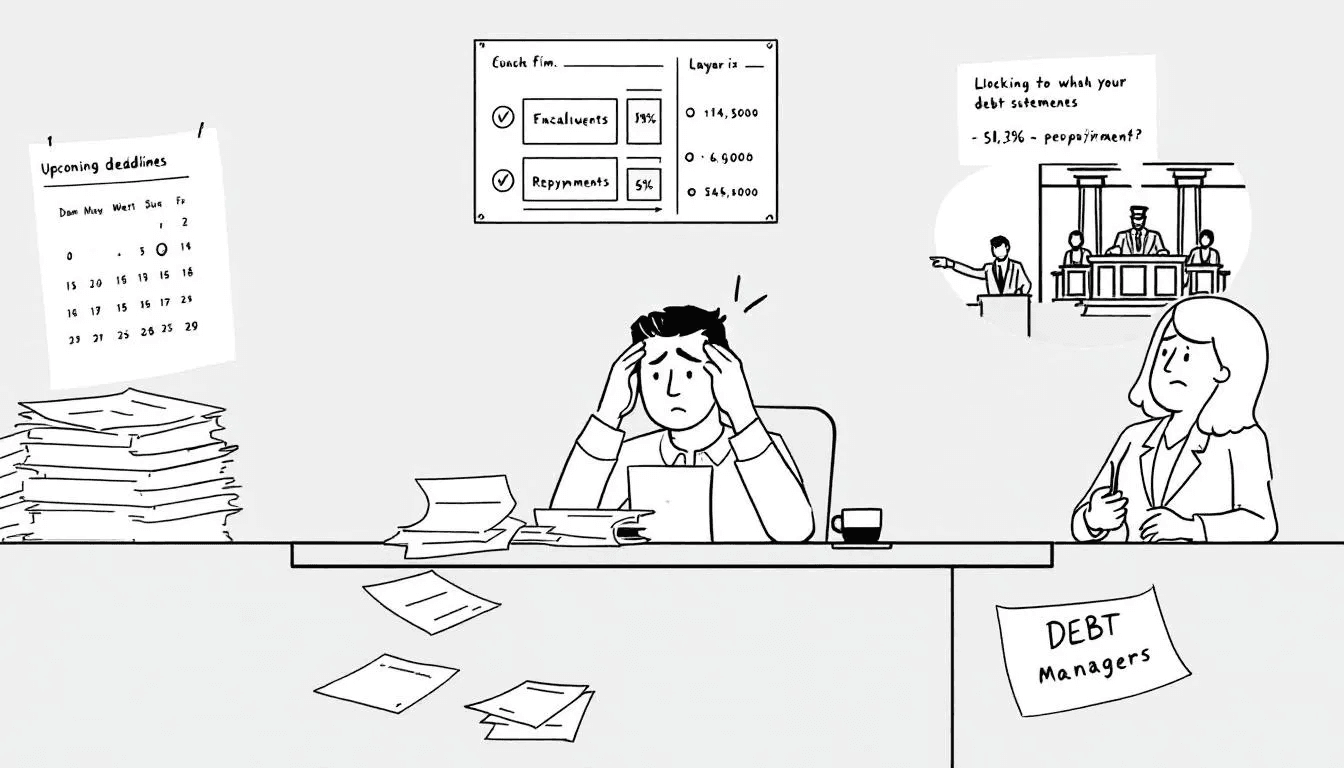

Managing old debts that you cannot pay involves exploring various strategies to collect debt:
- Direct negotiation with creditors can lead to a more favorable debt settlement than using third-party companies.
- Debt settlement involves agreeing to pay less than the full amount owed, which may include a partial payment.
- Be cautious as settlement companies may charge high fees.
- Not all creditors may agree to negotiate.
Debt consolidation is another option, allowing you to combine multiple debts into a single loan with a lower interest rate, simplifying your repayment process. As a last resort, bankruptcy can provide a fresh start by discharging most types of unsecured debts, though it has long-term effects on your credit score.
Summary
Understanding the Connecticut statute of limitations on debt is crucial for managing your financial health. Knowing your rights and the specific time limits for different types of debt can protect you from unwarranted legal actions and help you make informed decisions about debt repayment. Stay proactive, verify debts, and be aware of your legal protections to navigate the complexities of debt collection.
Frequently Asked Questions
What is the statute of limitations on debt in Connecticut?
The statute of limitations on debt in Connecticut is six years, commencing from the date of the last activity related to the debt.
Can a debt collector contact me after the statute of limitations has expired?
A debt collector may contact you even after the statute of limitations has expired; however, they cannot legally enforce the debt through court action. It is advisable to be aware of your rights regarding such communications.
How do I know if a debt is time-barred?
A debt is time-barred when the statute of limitations has expired, preventing the creditor from legally pursuing repayment. To confirm this, check the applicable time limits for your type of debt in your state.
What should I do if I’m sued for a debt that is too old?
If you are sued for a debt that is too old, it is essential to file an answer asserting the statute of limitations as a defense within 30 days of receiving the summons. Doing so can help protect your rights and potentially dismiss the case.
Are there any debts not covered by the statute of limitations?
Yes, debts like court judgments can have different time limits and may be subject to renewal, meaning they aren’t necessarily covered by the statute of limitations.

